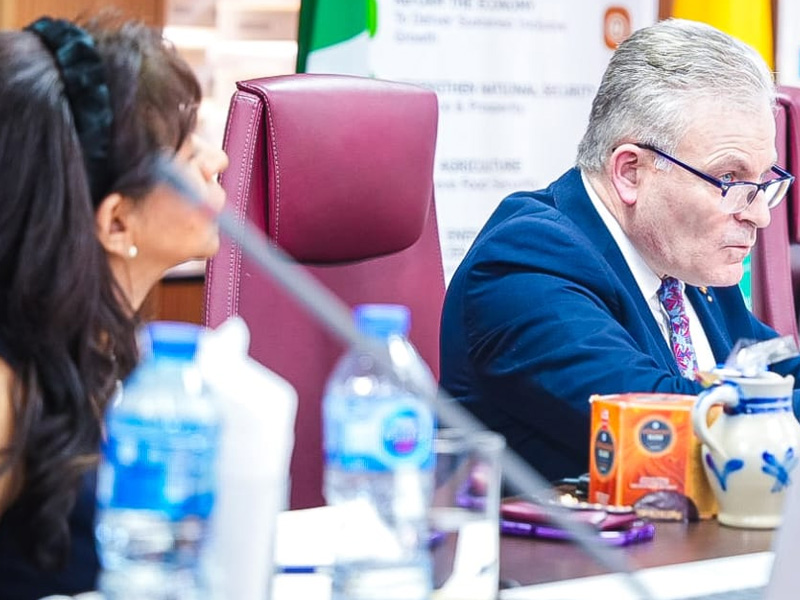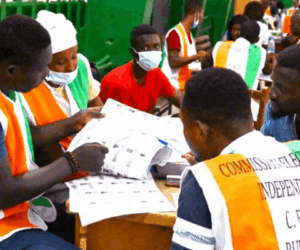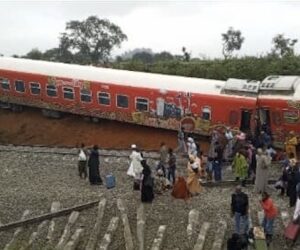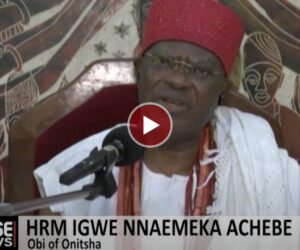A delegation of IHK Giessen-Friedberg Chambers of Commerce and Industry, Germany, led by Dr. Matthias Leder, is billed to arrive Nigeria on November 2 for a two-week consultation with top government officials and the Nigerian Chamber of Commerce, Industry, Mines and Agriculture (NACCIMA), among others, on how to deepen partnerships between Nigeria and Germany.
The delegation, which is billed to hold high- level discussions with about six ministers, officials of various chambers of commerce at national and subnational levels, as well as other public and private sector players, will be in the country until November 14.
The visit is in continuation of their last one in February, where they held discussions with top government officials, including Minister of Foreign Affairs, Amb. Yusuf Tuggar, as well as private sector players.
Speaking at a virtual press conference on Thursday, Leder stated that over the past two years alone, IHK Giessen-Friedberg had embarked on two official missions annually to Nigeria, just as Nigeria’s former information minister, Alhaji Lai Mohammed, twice participated in Giessen’s prestigious international B2B conference, “The World Meets in Giessen,” first as a keynote speaker and later as a panellist.
According to Leder, these engagements have deepened mutual understanding between both nations and opened new opportunities for investment, trade, and skills transfer.
He explained that the impending visit of the IHK delegation to Nigeria sought to consolidate the gains achieved so far and explore avenues for scaling up the partnership—both in scale and in scope.
He stated that discussions were scheduled with senior government officials, including Ministers of Labour and Employment; Youth Development; Education; Foreign Affairs; Budget and Economic Planning; and Industry, Trade and Investment.
Leder stated that between December 2012 and December 2018, the Vocational Training Partnership Project (BBP), supported by German Federal Ministry for Economic Cooperation and Development (BMZ), was successfully implemented, in collaboration with leading Nigerian business institutions.
Implemented across Abeokuta, Abuja, and Lagos, the initiative focused on industrial mechanics, industrial electronics, technical facility management, and office administration.
He disclosed that no fewer than 310 trainers and 290 trainees benefited directly from the programme, adding that cumulatively over 600 individuals were trained and supported in vocational education by IHK Giessen-Friedberg.
The intervention not only built human capital, but also introduced a structured, dual vocational training (DVT) approach to Nigeria—aligning practical industry skills with classroom learning, Leder stated.
He also cited the Chamber Partnership Project (KVP), implemented from 2012 to 2018 and renewed in 2023, stating that it seeks to strengthen Nigeria’s chambers of commerce as vital drivers of private sector growth.
The IHK Giessen-Friedberg Chambers of Commerce and Industry leader listed some key achievements of the programme, including institutional strengthening, service development for members, and local and international exchange, among others.
He stated that through trade missions and participation in international events, such as The World Meets in Giessen and German-African Business Summit (GABS), Nigerian chambers were now better integrated into global value chains.
Recognising the shortage of skilled workers in Germany’s hospitality sector, Leder stated that a new bilateral project was being launched to provide dual vocational training opportunities for young Nigerians aged between 21 and 27.
According to him, the project, jointly implemented by IHK Giessen-Friedberg, the Delegation of German Industry and Commerce in Nigeria (AHK Nigeria), the Goethe-Institut, and the GIZ Centre for Migration and Development (ZME), enjoys the high-level support of Nigeria’s Federal Ministry of Labour and Employment.
The programme, which is to commence with candidate selection, will include intensive German language and intercultural training, followed by placement into certified training programmes in Germany.
Eighteen selected participants will undergo full preparation towards a B1–B2 language proficiency level, coupled with orientation on living and working in Germany.
Leder further disclosed that part of his organisation’s efforts was geared towards encouraging legal migration as opposed to the illicit option, adding that the latter is fraught with challenges, and is dangerous and more expensive.
Follow us on:








